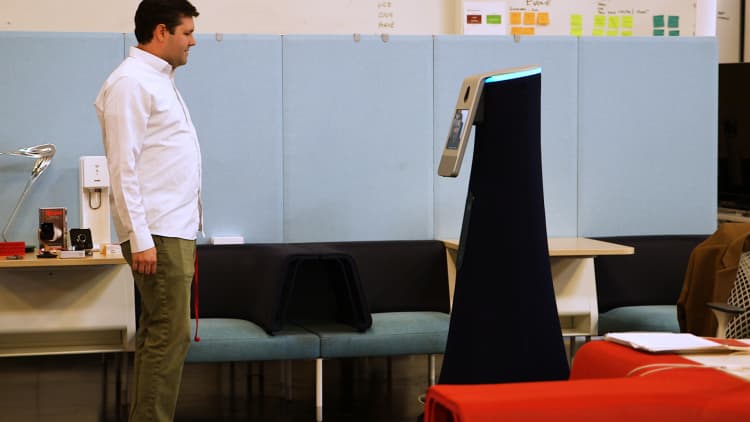Office workers beware: Lunch theft isn't as unusual as you might hope.
Last week, Los Angeles-based comedian Zak Toscani took to Twitter to recount the play-by-play of the investigation of an alleged office lunch theft at the post-production company where he works. (Check out the full thread on Twitter for the full dish on the fate of the victim's shrimp fried rice.)
The saga quickly went viral. As of early Monday, Toscani's initial tweet had garnered nearly 173,000 retweets and more than half a million likes, with workers sharing their own stories and even presumably lunch-theft-immune celebrities weighing in on the drama.
No wonder the case of the missing shrimp fried rice struck a nerve.
Nearly 1 in 5 workers — 18 percent, to be exact — admits to having eaten someone else's lunch out of the office fridge, according to a 2017 survey from American Express OPEN. The issuer polled 1,061 employees.
People don't forget it — and you see these people every day.Dan SchawbelCareer and workplace expert
Alison Green, author of the "Ask a Manager" blog, says issues pertaining to the office kitchen are a "constant" theme among workers who write in. (How constant? Her forthcoming book is called "Ask a Manager: How to Navigate Clueless Colleagues, Lunch-Stealing Bosses and the Rest of Your Life at Work.")
"It's such an unusual thing to be so widespread," said Green. "Who are these sociopaths who are stealing lunches across the land?"
But not every case involves someone purposely claiming a colleague's lunch for his own.
"Some things that look like thefts are actually miscommunications," she said — accidentally grabbing someone else's yogurt instead of your own, for example, or being overzealous in cleaning out what they think is old food.
Nor is it unheard of for workers to take retaliatory action, say, by throwing out the food of a coworker known for microwaving fish in the office kitchen.

If you're a victim of repeat office lunch thefts, the loss can take a bite out of your budget. But such incidents can be even more costly for thieves — especially if the incident becomes prime-time office gossip or gets wider circulation a la Toscani's viral tweets.
"People don't forget it — and you see these people every day," said career and workplace expert Dan Schawbel, author of the forthcoming book "Back to Human."
Even if there's no official reprimand or action from management, a reputation for pilfering food may erode the thief's standing in that workplace, creating a situation where he or she no longer fits with the office culture, Schawbel said. That in turn can have big ramifications.
"It becomes a trust issue," he said. "This person might not ever be promoted, or when it's bonus time, they might not get a bonus."
Thwarting office lunch theft
The takeaway for lunch thieves is simple: Don't.
"There are just certain ground rules for how you behave in the workplace," Schawbel said. "If it's not yours, don't touch it."
To avoid becoming either victim or perpetrator in an accidental theft, Green said, "be careful that whatever you're taking out of the fridge to eat or trash is actually yours." Labeling food with your name and the date can help avoid such mishaps.
But labels may not deter a deliberate thief. In offices where there's a repeat offender, Green said, workers tell her they've resorted to buying mini fridges or lunchboxes that lock. Or they take more creative measures.
"I heard from someone who put her food in a brown paper bag and labeled it 'breast milk,'" she said.
Lunch theft and other office kitchen woes are also a prime case for looping in human resources, she said. They can send a gentle, office-wide reminder or take other actions to address the problem.
More from Personal Finance:
Here's how to prepare your kids for 'adulting'
Qualifying for unemployment insurance is easier than you think
These are the ways student loans stop people from buying a house


